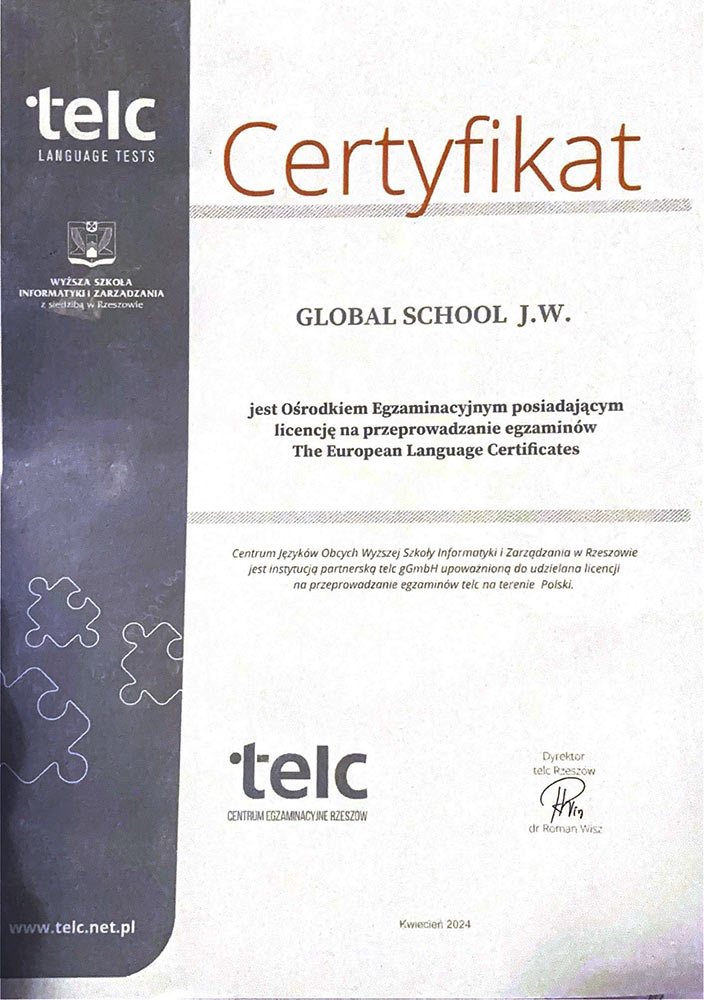POLISH EXAM
FOR THE RESIDENCE EU CARD!
Is it time to apply for an EU Residence Card? You’re afraid of the state exam? 100% of our students pass exams with a score of over 80%.
Want to join them?
Then taking the TELC exam is perfect for you! We've obtained the license and become official examiners!

Intensive course – from 10 to 20 lessons, 60 minutes each
(Lesson intensity is determined after testing)
(The cost of preparation depends on the number of lessons per month and the format of training)
Bonus: Free registration, but the exam fee is paid separately
